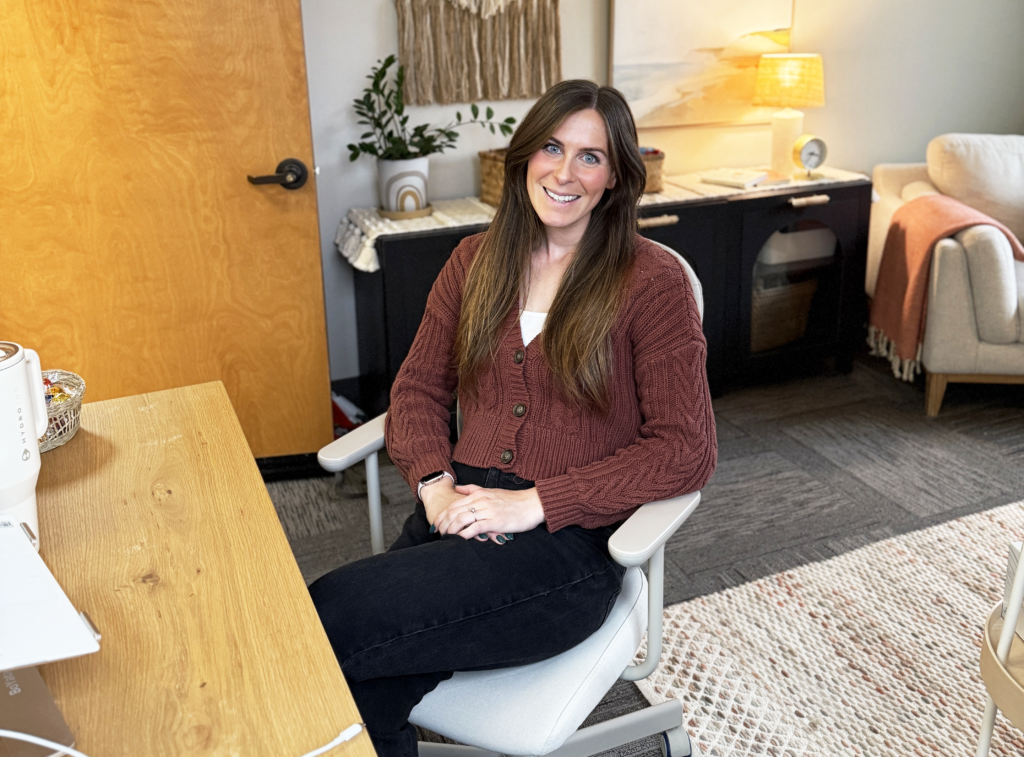Learn the power of self-validation in healing with Lighthouse Family Therapy in San Antonio, TX.

The Power of Self-Validation in Your Healing Journey
In today’s fast-paced, often judgmental world, we frequently look outward for approval and validation. But relying too heavily on others’ opinions can erode our self-worth, leading to a dependency that stifles personal growth and healing. Self-validation the practice of accepting and valuing our feelings, thoughts, and experiences without external approval is essential in mental health and healing. At Lighthouse Family Therapy, Josephine specializes in guiding clients on this transformative journey, helping them find inner strength and resilience.
What is Self-Validation?
Self-validation means recognizing, accepting, and valuing your thoughts, emotions, and behaviors without needing external affirmation. This doesn’t mean ignoring others’ feedback, but rather finding internal validation as a primary source of self-worth.
For a deeper understanding of the concept of self-validation, explore this article by Psychology Today.
Why Self-Validation is Crucial in Healing
Reduces Dependency on External Validation: By embracing self-validation, individuals rely less on others to feel good about themselves, fostering independence.
Promotes Authenticity: Acknowledging our feelings honestly, rather than seeking approval, encourages self-trust and authenticity.
Increases Emotional Resilience: People who practice self-validation can better handle criticism, setbacks, and negative experiences, leading to a healthier emotional life.
Feeling unheard: If you feel that your partner doesn’t listen or dismisses your opinions, this can create feelings of loneliness and frustration.
To explore how self-validation impacts mental health, read this comprehensive guide by Mental Health America.
How Self-Validation Supports Mental Health
Embracing self-validation can benefit mental health in numerous ways. Here’s a look at some of the key impacts:
1. Fosters a Positive Self-Image
When you validate yourself, you recognize your worth beyond external opinions, strengthening self-esteem and self-acceptance. This sense of self-worth is vital in managing anxiety, depression, and other mental health concerns.
2. Builds Resilience Against Negative Thoughts
Self-validation allows individuals to view themselves positively, even when faced with challenges. This resilience helps manage negative thoughts and emotions, making it easier to overcome difficult moments.
3. Encourages Personal Growth
By validating your thoughts and feelings, you become more open to exploring your strengths, values, and aspirations, which supports personal growth and self-empowerment.
For tips on building resilience, check out this article from Help Guide.
Steps to Practice Self-Validation
Self-validation is a skill that can be developed over time. Here are a few practical steps:
1. Recognize and Name Your Emotions
Awareness is the first step in self-validation. Take a moment to identify your emotions and acknowledge that they are valid. Avoid dismissing or rationalizing your feelings.
2. Practice Mindful Self-Compassion
2. Practice Mindful Self-Compassion
Self-compassion involves treating yourself with kindness and understanding, especially in difficult times. This practice reinforces the idea that your emotions are natural and worthy of respect.
To learn more about self-compassion, explore this guide by Mindful.
3. Challenge Negative Self-Talk
Negative self-talk can undermine self-worth. Practice replacing critical thoughts with affirming statements that acknowledge your feelings. For example, instead of saying, “I shouldn’t feel this way,” say, “It’s okay that I feel this way; my feelings are valid.”
4. Set Boundaries with Others
Setting boundaries is a form of self-validation, as it shows respect for your personal needs and limits. By establishing healthy boundaries, you create space for self-acceptance.
For more on boundary-setting, read this piece by Healthline.
Common Barriers to Self-Validation
While self-validation offers many benefits, some people struggle to implement it. Here are some common barriers:
- Fear of Judgement: People often worry about being judged for their feelings, leading them to suppress emotions instead of acknowledging them.
- Conditioned Dependency on Approval: From a young age, many are conditioned to seek approval from parents, teachers, and peers, making self-validation challenging.
- Negative Self-Beliefs: Deep-rooted negative beliefs can lead people to dismiss their worth and invalidate their emotions.
For insights on overcoming these barriers, explore this article by Good Therapy.

How Lighthouse Family Therapy Supports Self-Validation
At Lighthouse Family Therapy, with Josephine works with clients to build self-validation skills that foster healing and personal growth. She tailors her approach to meet each client’s unique style, preferences, and goals, helping them embrace their inner worth and heal from within. This compassionate support allows clients to confront their challenges with greater confidence and emotional resilience.
Josephine’s expertise in self-validation and emotional wellness provides a safe space for individuals to learn these skills and apply them in their daily lives, empowering them to pursue healthier, more fulfilling relationships and experiences.
For more on the benefits of therapy in fostering self-acceptance, read this article by Very well Mind.
Resources for Building Self-Validation Skills
Here are some additional resources for those interested in building self-validation skills:
- National Institute of Mental Health on Emotional Wellness
- Understanding Self-Esteem by Mayo Clinic
- Self-Growth Techniques by PositivePsychology
- Mindfulness for Beginners by Mindful
- Self-Care Tips by Psychology Today
Self-validation is an invaluable skill in today’s world, where external pressures and social comparisons can often leave people feeling uncertain of their own worth. At Lighthouse Family Therapy in San Antonio, we’re committed to guiding you through your journey to self-acceptance and healing. Embracing self-validation is not only empowering but an essential step toward lasting emotional health.
